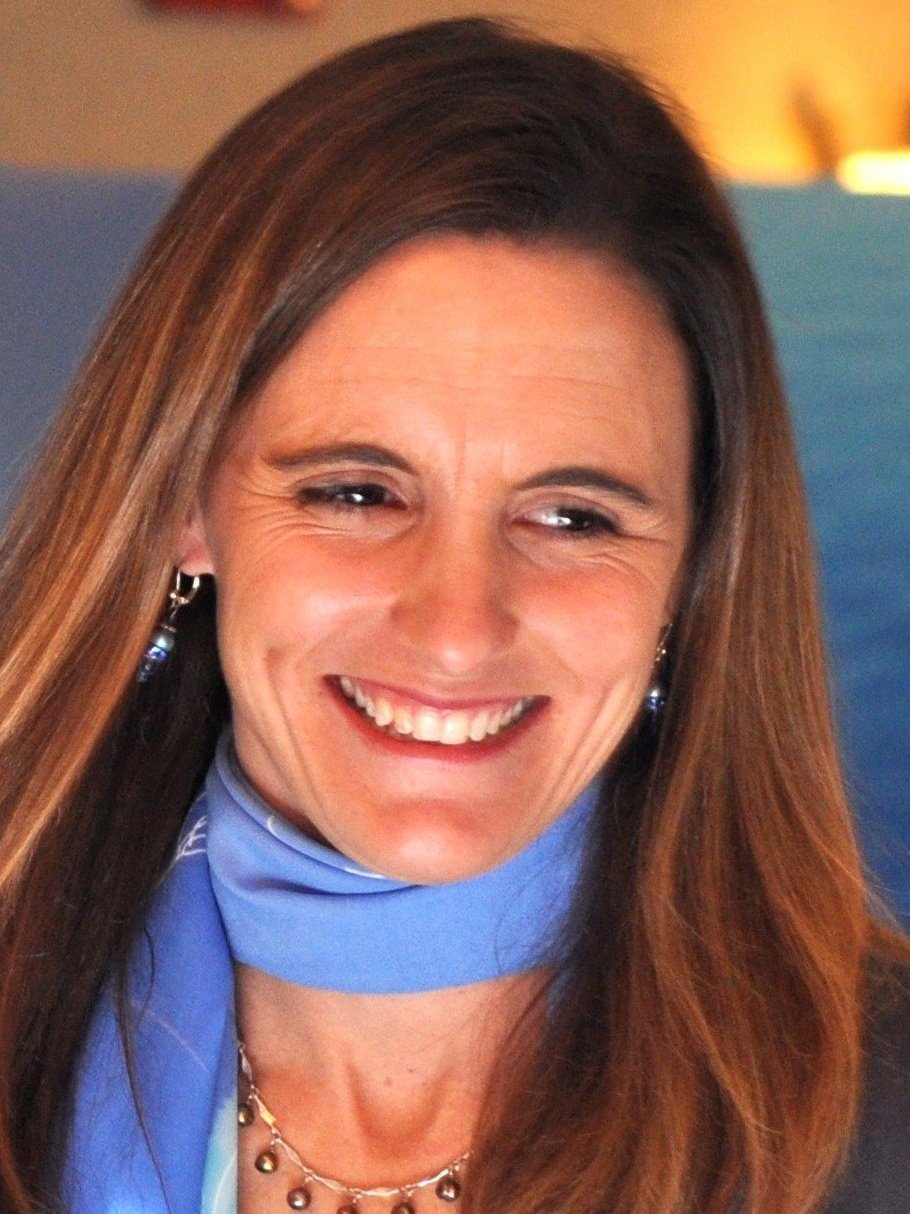Proposals about environmental management that go beyond direct climate impacts long have asked about mitigating various types of pollution and waste, with a growing focus on plastics. They also address agricultural practices such as the treatment of food animals, antibiotics in feed, pesticides and water. This year, the total now sits at 35 resolutions, with several new issues such as product repair, chemical footprinting and mining and indigenous rights.
Waste & Pollution
Plastics and Packaging
As You Sow and Green Century are the main players seeking to cut the use of plastics, at both producers and users. They have filed 15 proposals, with only two that are resubmissions (table, above). The proposals foresee financial risks to industry of up to $100 billion should governments require them to cover waste management costs they impose. They reference a July 2020 Pew Charitable Trusts report, Breaking the Plastic Wave, which estimates current initiatives will cut ocean plastics by only 7 percent, tripling flows into the oceans by 2040. The resolutions call for sharp reductions in production and use, plus more recycling.
HOLDING BIG OIL ACCOUNTABLE FOR PLASTIC MISMANAGEMENT
JOSHUA ROMO
Energy & Plastics Associate, As You Sow
CONRAD MACKERRON
Senior Vice President, As You Sow
Plastics currently impose a lifecycle social cost at least ten times higher than their market price. While ubiquitous plastic waste dominates public perception, threats to the climate and health are mounting. Despite rising understanding of the broad landscape of risks facing the current fossil-fueled plastic economy, the oil and gas industry is betting on a world that uses more and more virgin plastics. U.S. petrochemical producers, while claiming to take significant action against ocean plastics and climate change, cling to this worldview to justify building more virgin plastic production infrastructure and extracting fossil fuels. Simply put, we need significant reductions in the overall use of plastic; remaining production must transition from virgin to recycled polymers.
Make less: In 2021, DuPont de Nemours investors gave overwhelming support for a resolution asking it to report on its plastics releases and efforts to reduce them. This year, perhaps heartened by that vote, proponents are asking three producers to reduce virgin plastics production:
At Phillips 66, the request is to report on how it “could shift its plastic resin business model from virgin to recycled polymer production as a means of reducing plastic pollution of the oceans.” Back in 2019, As You Sow withdrew a proposal about plastic pellet spills when the company agreed to report, just before the annual meeting and after the proxy statement came out.
A resolution at Dow and ExxonMobil is new and asks each for an audited report on whether and how a significant reduction in virgin plastic demand, as set forth in Breaking the Plastic Wave’s System Change Scenario to reduce ocean plastic pollution, would affect the Company’s financial position and assumptions underlying its financial statements.
Dow says the proposal arrived 34 minutes past the deadline and can be omitted.
Cut use: At Amazon.com, Kroger and McDonald’s, As You Sow asks each to explain how it “will reduce its plastics use in alignment with the reductions findings of the Pew Report, or other authoritative sources, to feasibly reduce ocean pollution.” The proposal says the report could:
Quantify the weight of total plastic packaging used by the company;
Evaluate the benefits of dramatically reducing the amount of plastics used in our packaging;
Assess the reputational, financial, and operational risks associated with continuing to use substantial amounts of plastic packaging while plastic pollution grows unabated;
Describe any necessary reduction strategies or goals, materials redesign, transition to reusables, substitution, or reductions in use of virgin plastic.
Investors have voted in the recent past on similar proposals before, with support last year reaching 35.5 percent at Amazon.com and 45.6 percent at Kroger. In comparison, a packaging resolution at McDonald’s received just 7.8 percent in 2018, highlighting how much the landscape has shifted on plastics pollution.
PLASTIC POLLUTION: PUSHING FOR ABSOLUTE REDUCTIONS AND REFILLABLES GOALS
KELLY MCBEE
Waste Program Coordinator, As You Sow
In 2021, As You Sow shifted its focus on plastic pollution from asking companies to make plastic packaging more recyclable to using less plastic, with terrific results. Our proposals to 10 major consumer goods companies led five companies, including Target and Walmart, to agree to cut virgin plastic use by more than 700,000 tons by 2025.
Rethink single uses: Green Century withdrew a proposal at Coca-Cola last year when it agreed to cut virgin plastics use by 3 million tons by 2025, but it is back now with a request for reporting on reuse and
the potential to more rapidly reduce dependence on single use plastic packaging by expanding and supporting refillable bottle systems and infrastructure globally. The report should establish uniform companywide metrics for the company’s public reporting on refillables use, and evaluate opportunities for setting aggressive refillables goals and deadlines.
At PepsiCo, it also asks for a report “describing the potential and options for the Company to rapidly reduce dependence on single-use plastic packaging.”
At Church & Dwight (owner of the Arm & Hammer brand) and Kraft Heinz, the proposal asks how each will “will reduce plastic packaging, including any planned reduction strategies or goals, materials redesign, substitution, or reductions in use of virgin plastic.” Investors have already voted on a similar resolution asking Jack in the Box to develop a “comprehensive sustainable packaging policy approach.”
At CVS Health, Newell Brands and ODP (formerly Office Depot) the request is to assess “if and how the Company can increase its sustainability efforts by reducing its absolute plastic use across its operations.” At ODP it specifies the resolution is about “private label product packaging and ecommerce shipping.” Previously, CVS made a commitment in 2020 to report and collaborate with others, prompting a proposal withdrawal.
Votes—A proposal similar to the CVS version has earned 13.7 percent at Tyson Foods. The Jack in the Box voted was 95.4 percent, the highest ever for a resolution opposed by management.
Withdrawal—Green Century has withdrawn at CVS after reaching an agreement.
SEC challenges—Two SEC challenges are pending. Kraft Heinz claims that As You Sow did not prove its stock ownership, while PepsiCo says the resolution can be omitted on ordinary business grounds because it is involved in related litigation. Last year, As You Sow withdrew a more general resolution about plastic packaging and said it reached an accord, but the company also had challenged on ordinary business grounds.
Right to repair: Late in 2021, As You Sow withdrew a resolution at Microsoft about reporting on its device repair policy. Green Century has taken up the mantle on this new area of concern for 2022 at Alphabet, Apple and Deere, asking each to relax restrictive repair policies that prevent independent and potentially cheaper repairs to cut down on planned obsolescence. It asked Apple and Alphabet to report “on the environmental and social benefits of making Company devices more easily repairable by consumers and independent repair shops.” Although it is still pending at Alphabet, Green Century withdrew and claimed a major victory when Apple announced it would allow customers to repair its products; the company also had challenged the proposal at the SEC, saying it was ordinary business.
At Deere, the proposal took a slightly different form, seeking a report ”on the emerging state and federal Right to Repair legislation and the Company’s explanation of underlying issues giving rise to those policy proposals.” Deere told the SEC the resolution had been implemented and was ordinary business and Green Century withdrew but reached no accord.
Chemical Footprint
Four companies have new resolutions from ICCR members asking about their chemical footprints and how they can be reduced; none have seen recent related proposals. The resolution at Bed Bath & Beyond asks for a report “on the outcomes of the Company’s chemical reduction efforts by publishing quantitative and qualitative data on progress to eliminate the use of chemicals of concern,” and says the report could include:
Evaluation of vendor compliance with the Company’s chemical policies;
Measure of chemical footprint in private label and third-party products;
Set reduction goals, and track and disclose progress against a baseline.
REDUCING CHEMICAL FOOTPRINT LESSENS BUSINESS RISK
ALEXANDRA MCPHERSON
Consulting Manager, Investor Environmental Health Network
MARK ROSSI
Executive Director, Clean Production Action
Investors have filed resolutions with Five Below, Dollar General, Bed Bath & Beyond, and Kroger to expand and improve chemical safety programs. This comes at a time when regulatory risk and consumer concern is rising.
Since 2000, more than 35 states have passed 173 policies that establish state chemicals programs to identify, limit, or ban the use of harmful chemicals in products, including tips for consumers. PFAS, “forever chemicals,” are a particular growing global concern because of their persistence and toxicity. In 2022, more than 50 state bills are moving to ban PFAS in textiles, cosmetics, food packaging, and other applications.
It cites scientific concern about connections to toxic chemical exposures and more chronic diseases and a reduction in immunity, noting pending legislation around the United States about safer chemicals, and the work of the nonprofit group Safer States, plus action by peers through the Chemical Footprint Project.
At Burlington, the simple request is for a report “describing if, and how, it plans to reduce its chemical footprint,” noting a journal article about “premature deaths linked to a common class of chemicals found in food containers, cosmetics and children’s toys cost the US about 40 to 47 billion dollars annually in lost economic productivity.” The proposal also references standards for retailers defined by the Sustainability Accounting Standards Board (SASB) on chemical safety. As at Bed Bath & Beyond, the proposal makes specific suggestions for reporting on “the relative benefits and drawbacks of”
Developing a comprehensive chemical policy;
Adopting short- and long-term priority chemical lists;
Identifying chemicals of high concern and a process for their elimination; and
Deployment of safer alternatives when available.
Withdrawal—Trinity Health has withdrawn at Five Below after an agreement. The proposal sought a report on how the company assesses and manages “risks and/or hazards associated with chemicals in products, with consideration of the SASB multiline and specialty retailers standard.” Five Below will adopt the SASB standard and report after the end of its fiscal year 2023 and consider related policies for its private-label products.
At Dollar General, the resolution from the Presbyterian Church (USA) is more prescriptive, asking the company to “reduce its chemical footprint by adopting new policies” that include:
Expanding its chemical restrictions to include appropriate categories of third-party branded products;
Accelerating the timetable to expand the number of chemicals addressed in the company’s Restricted Substance List using authoritative lists.
Agricultural Practices
Proponents have long expressed concern about how food is produced, addressing the use of antibiotics, pesticides and the treatment of food animals. This year there are 12 proposals on these issues with a few more filed by the Humane Society received too late to include in this report.
SHAREHOLDERS HELP BIG-AG BUILD A RESILIENT SUPPLY CHAIN
ARIANA GUILAK
Environmental Health Program Coordinator, As You Sow
As food manufacturers begin to more widely acknowledge and address the material risk of climate change and biodiversity loss, they must also acknowledge the role pesticides play.
Pesticide-intensive agriculture not only poses significant health risk to farmers, farm-adjacent communities, and consumers, but also threatens farms’ climate resiliency by reducing the ability of soil to store water and carbon. Additionally, pesticides threaten biodiversity by harming organisms above and below ground and helping pesticide-resistant weeds and insects proliferate. As concerns about pesticides have evolved, shareholders continue to urge companies to require farmers in their supply chain to report synthetic pesticide use, adopt strategies that reduce their need in the first place, and shift to regenerative farming.
Antibiotics
External costs: Last year saw the first of new proposals from The Shareholder Commons (TSC) that asked about the ways in which companies contribute to growing antibiotic resistance (known as “AMR” for “antimicrobial resistance”), and whether they should quantify their share of the responsibility. The proposals connected obligations to long-term investors and the stakeholder capitalism concept expressed in the 2019 Business Roundtable’s Statement on the Purpose of a Corporation.
In 2021 there was one vote of 11.9 percent at McDonald’s and a withdrawal at Yum Brands after it agreed to produce the report. TSC refiled at both companies this year and added Abbott Laboratories and Hormel Foods, where investors gave the resolution 6.9 percent support in January.
The proposal asked Hormel to “commission and disclose a study on the external environmental and public health costs created by the use of antibiotics in our company’s supply chain and the manner in which such costs affect the vast majority of its shareholders who rely on a healthy stock market.” It is slightly different at McDonald’s, asking for a report on “the link between the public-health costs created by the use of antibiotics in the Company’s supply chain and McDonald’s prioritization of enterprise risk” as well as how the problem may affect diversified shareholders’ returns.
For Abbott Laboratories, the focus is on research about combatting AMR and it seeks a report not only on the impact on shareholders but also on “1) the public health costs created by Company decisions not to invest additional resources in slowing the growth of antimicrobial resistance (AMR) [and] (2) market barriers to such additional investment.”
Withdrawal after SEC challenge— At Yum this year the proposal asked for an explanation of how the company could “address competitive concerns that interfere with efforts to mitigate the [AMR] crisis by considering the financial position of the Company’s diversified owners in establishing its practices.” The company argued at the SEC that its report last year made the resolution moot; it covered:
Greater context on AMR, the systemwide costs of AMR and strategy for quantifying external AMR costs
Stakeholders who absorb these costs
An optimal global scenario to eliminate or internalize AMR costs
Competitive concerns
How Yum! policies and procedures could influence the global scenario
TSC said in this year’s resolution that the 2021 report showed Yum still “prioritizes profits over safeguarding the global economy,” could do more to address the problem by greater collaboration with public and private entities” and still should quantify diversified shareholders’ performance improvements that could result from addressing AMR. But in the end TSC withdrew before the SEC responded.
Pesticides
Proponents previously have withdrawn about half the proposals they file about pesticides and earned votes in the 30-percent decile, with several agreements about pesticide use in food production. As You Sow asks Archer-Daniels-Midland, B&G Food, Kraft Heinz and Kroger to explain “if and how the company is measuring the use in its agricultural supply chains of pesticides that cause harm to human health and the environment.” The proposal outlines problems with pesticide use in the food system, including threats to “farmer resiliency and productivity due to proliferation of pesticide-resistant weeds and insects, loss of topsoil, and soil degradation.” It notes disclosures by other companies and decries it lack at the companies where it has filed, suggesting they report on:
Type and amount of pesticides avoided annually through targeted strategies like regenerative agriculture programs, IPM, or other methods;
Priority pesticides for reduction or elimination;
Targets and timelines, if any, for pesticide reduction.
The resolution is new to all but Kraft Heinz, where As You Sow withdrew after a procedural challenge.
Food Animals
The Humane Society of the U.S. (HSUS) asked Ingles Markets, a grocery store chain in the American South, to provide more information on its plans to sell only cage-free eggs; it received 7.7 percent support on February 15. Other issues that previously have come up at other companies address the use of leather and the pork supply chain.
At Levi Strauss, People for the Ethical Treatment of Animals (PETA) wants a report “on the slaughter methods used to procure leather to determine whether they conform to this policy. The report should also address the risks presented by any incompatible sourcing and the company’s plans, if any, to mitigate these risks.”
MCDONALD’S BREAKS ANIMAL WELFARE PLEDGE—NOW FACES BOARD BATTLE
LESLIE SAMUELRICH
President, Green Century Capital Management
On February 20, 2022, McDonald’s confirmed that Carl Icahn nominated both Maisie Ganzler and me for the company’s board of directors in response to McDonald’s failure to meet a public pledge it made 10 years ago to end the egregiously cruel and controversial practice of pig gestation crates by this year. McDonald’s falsely maintains it’s making progress towards this goal when sows in their supply chain are still immobilized in tiny stalls, not much bigger than their bodies, for several weeks of each pregnancy. They can’t even turn around, and it’s months of confinement in a tiny cage.
HSUS wants Wendy’s to report within three months to
confirm the individual crate confinement of gestating pigs will be eliminated from its North American supply by the end of 2022. If Wendy’s cannot so confirm, shareholders request: 1) its percentage of gestation crate-free pork, and 2) risks Wendy’s may face over the disparity between its gestation crate assurances and the use of crates beyond 2022.
HSUS has filed a similar proposal at McDonald’s, where billionaire Carl Icahn is backing dissident directors because he is dissatisfied about what he sees as a lack of progress in implementing the company’s policy to phase out gestation crates for pigs.
SEC challenges: Levi’s and Wendy’s have lodged challenges at the SEC. Levi Strauss says it concerns ordinary business because it addresses specific products—an argument that has prevailed in similar cases before. Wendy’s says its December 2021 plan to end the use of hog gestation crates by the end of 2022 makes the proposal moot, and also that the proposal is an ordinary business issue since it would involve a product-specific risk assessment. HSUS earlier had withdrawn a similar proposal at Wendy’s in 2012 but this year expresses skepticism that progress is being made.
Mining
Green Century is the lead proponent on a new proposal at Chemours about mining in northern Florida. It asks for a report on “material climate, regulatory, and reputational risks” that might occur were the company to acquire a titanium mining project, Twin Pines Minerals, located near the Okefenokee National Wildlife Refuge. The refuge’s 400,000 protected acres host “the largest refuge in the eastern United States and home to hundreds of plant and animal species” Green Century notes, storing “the equivalent of 95 million tons of carbon dioxide.” The proposal asks for a report
assessing the benefits and drawbacks of committing not to engage in titanium mining, nor to purchase titanium mined by others, near the Okefenokee National Wildlife Refuge, and assessing the financial and reputational risks to the company associated with such development or procurement.












